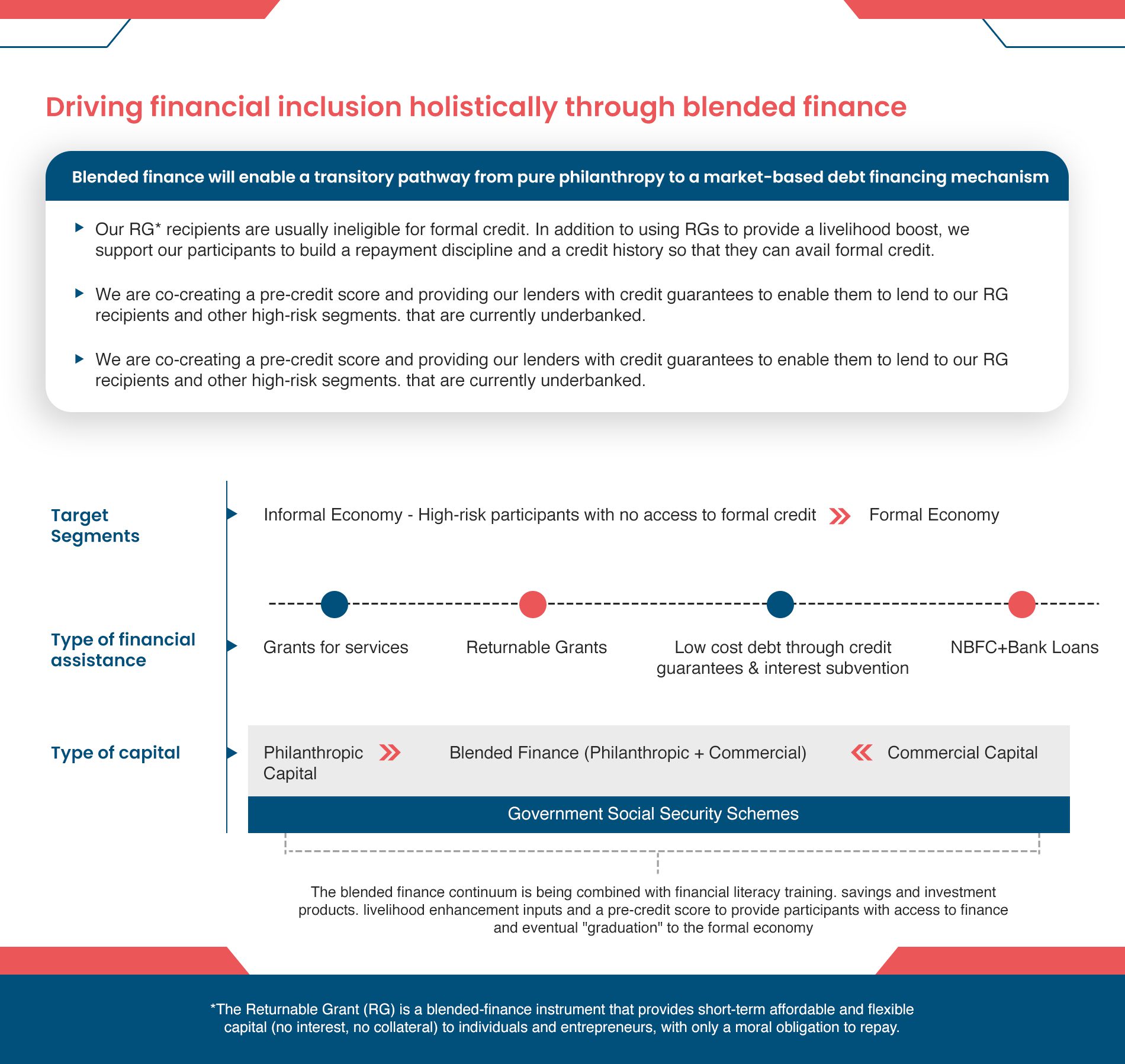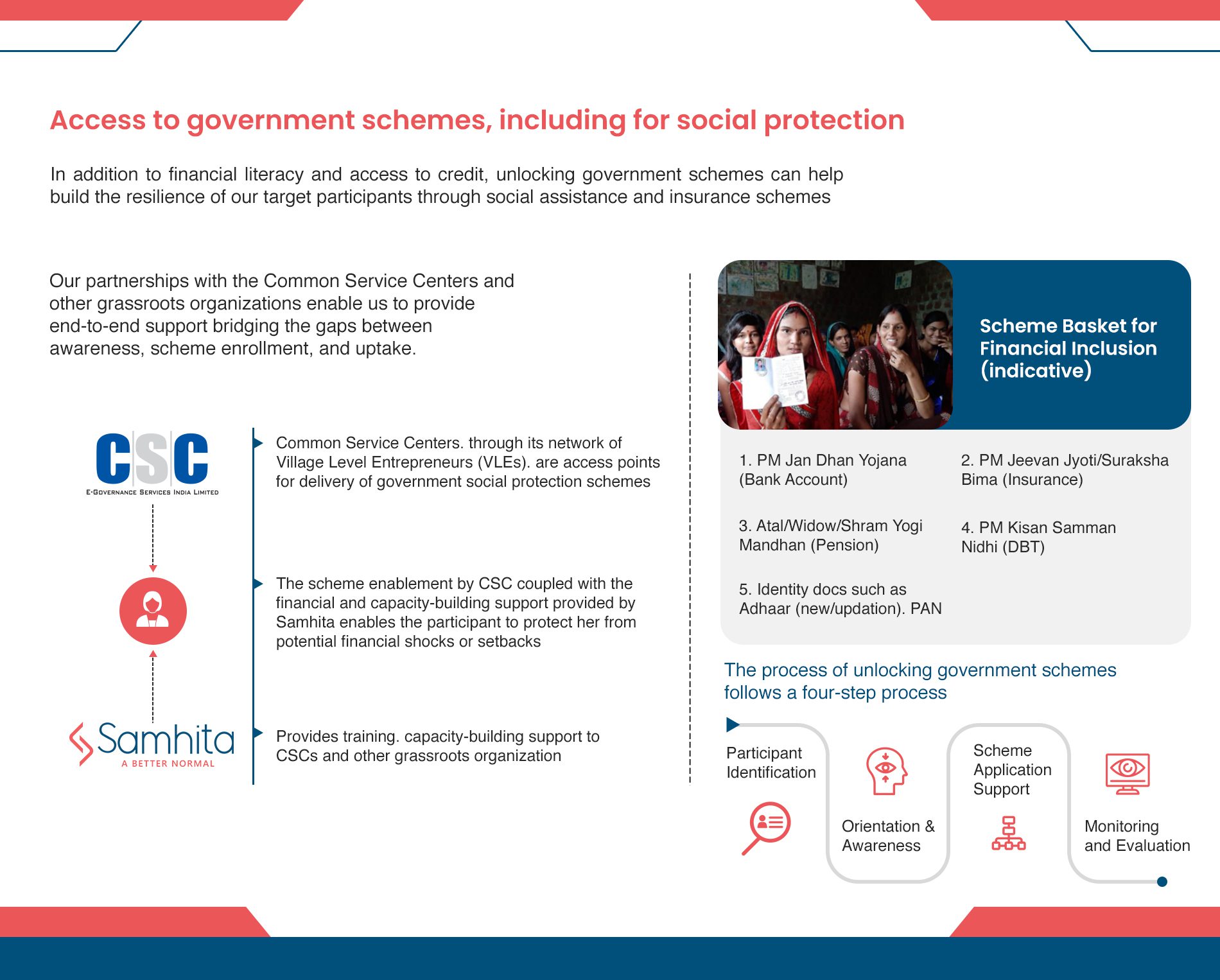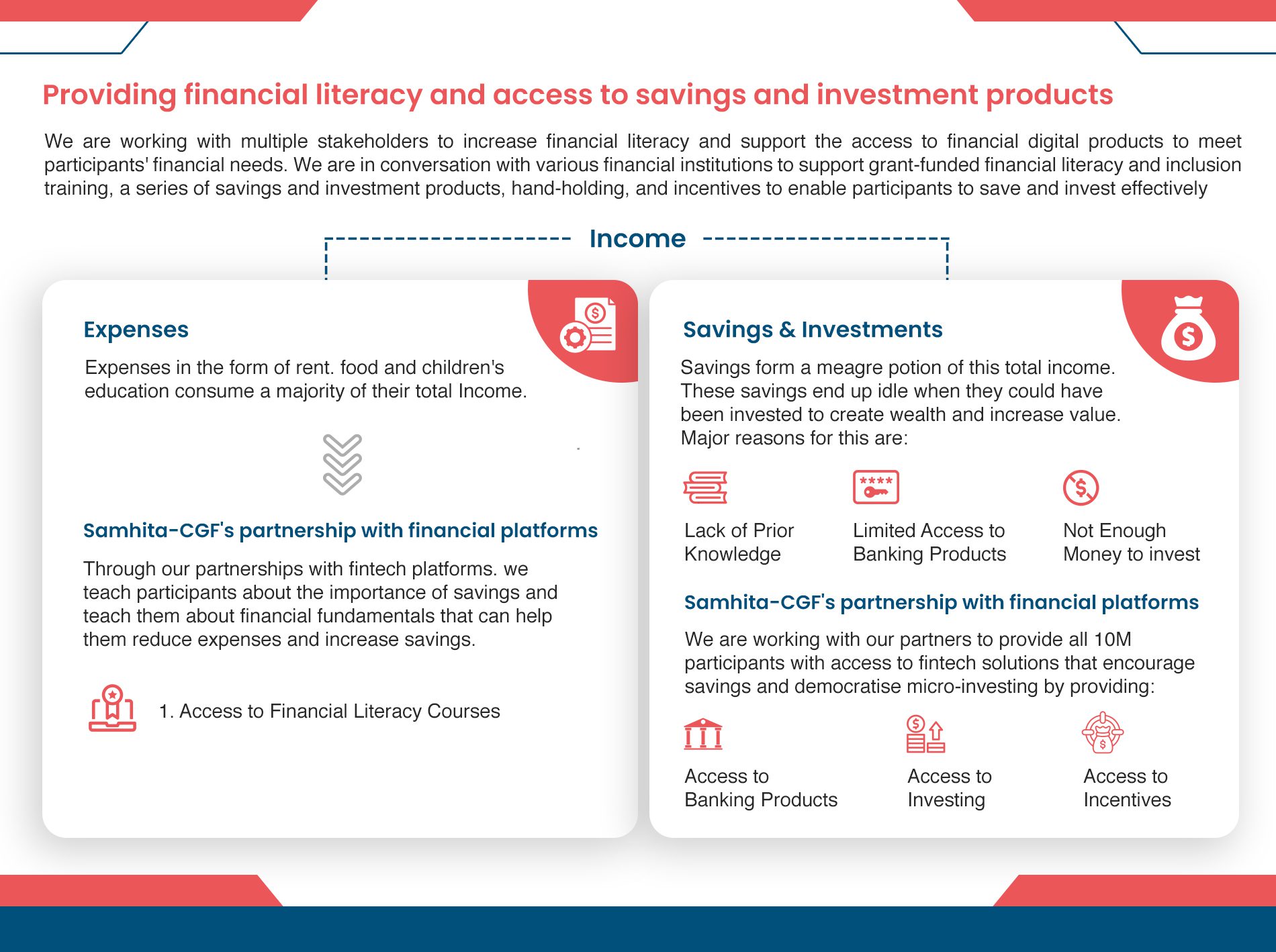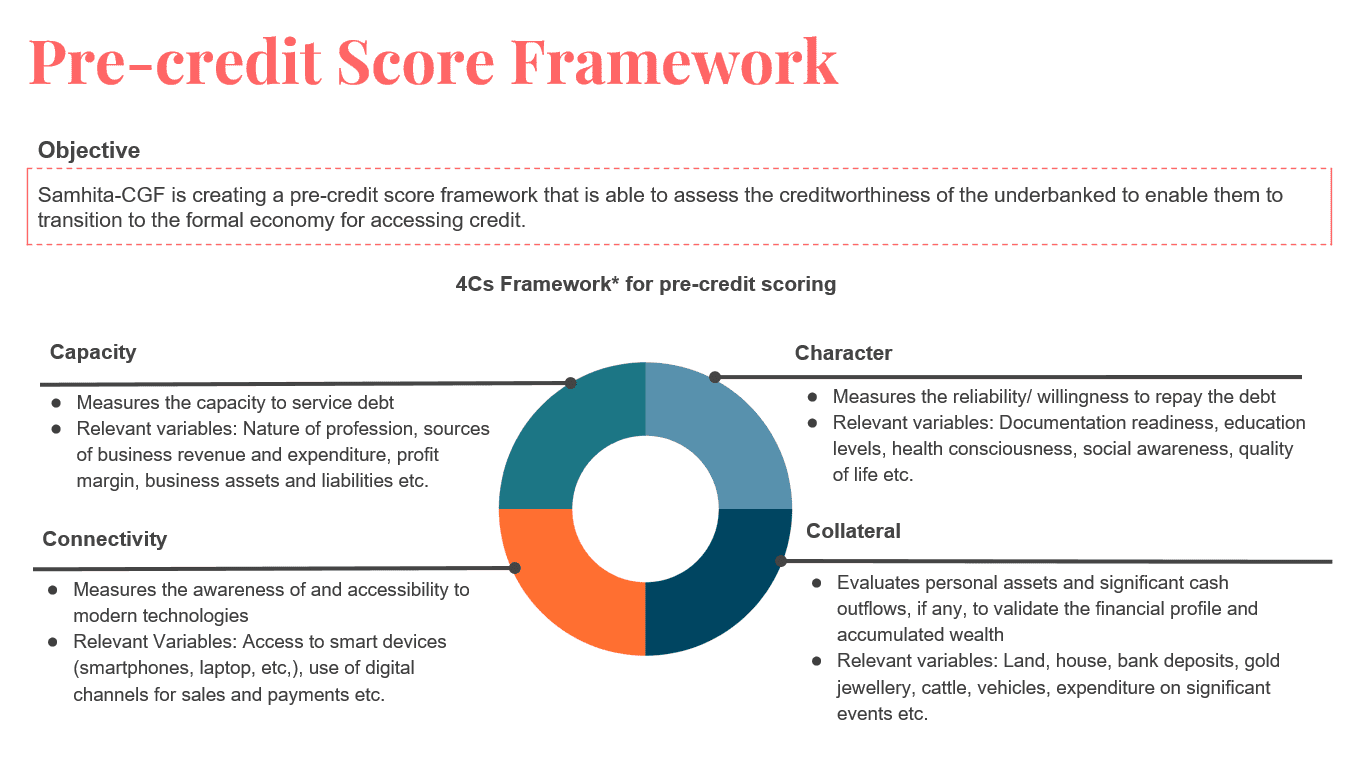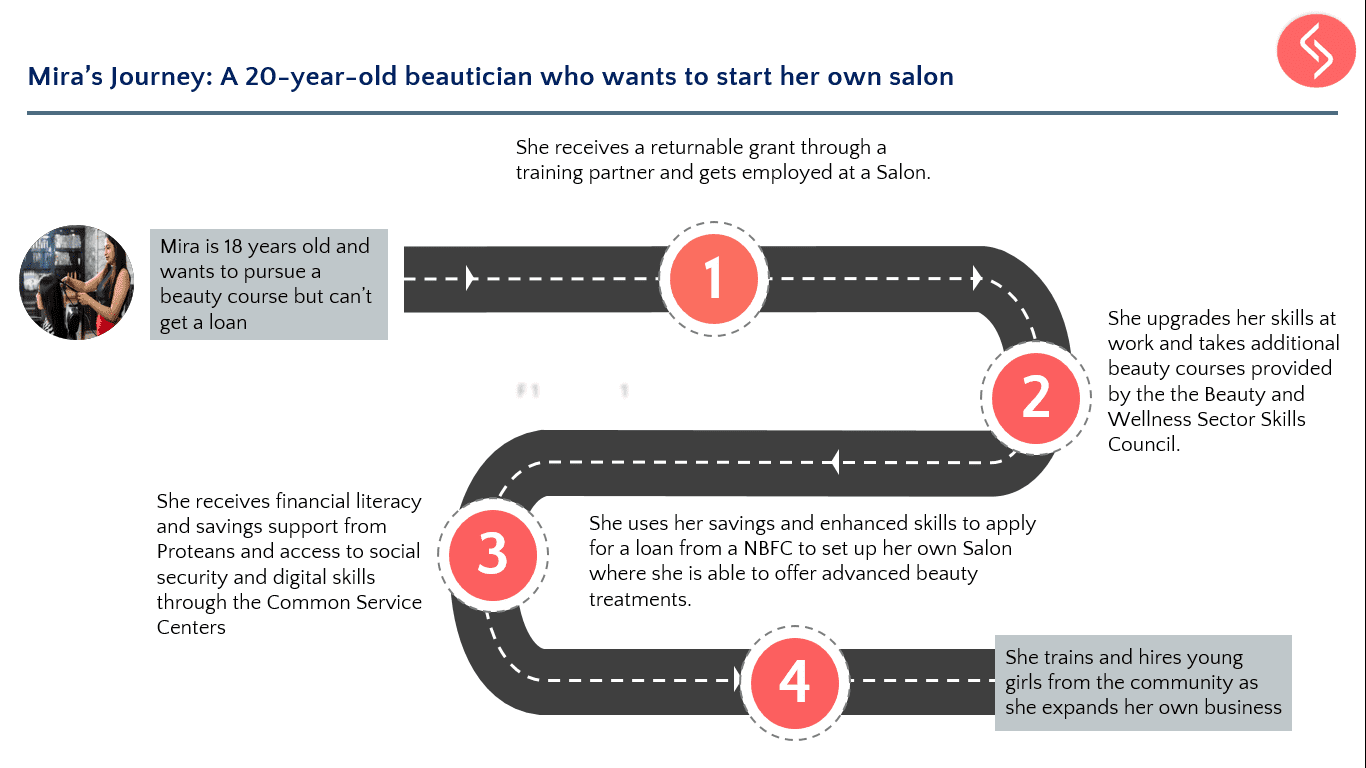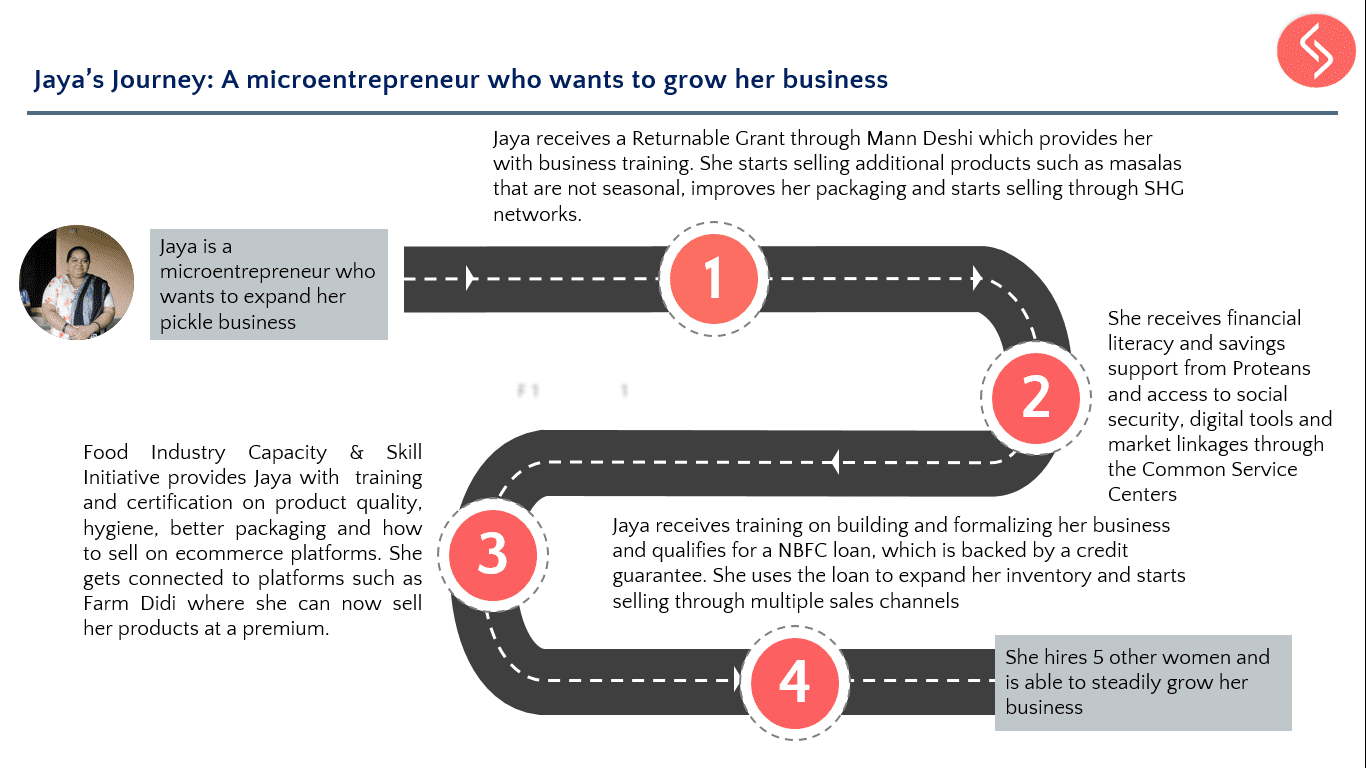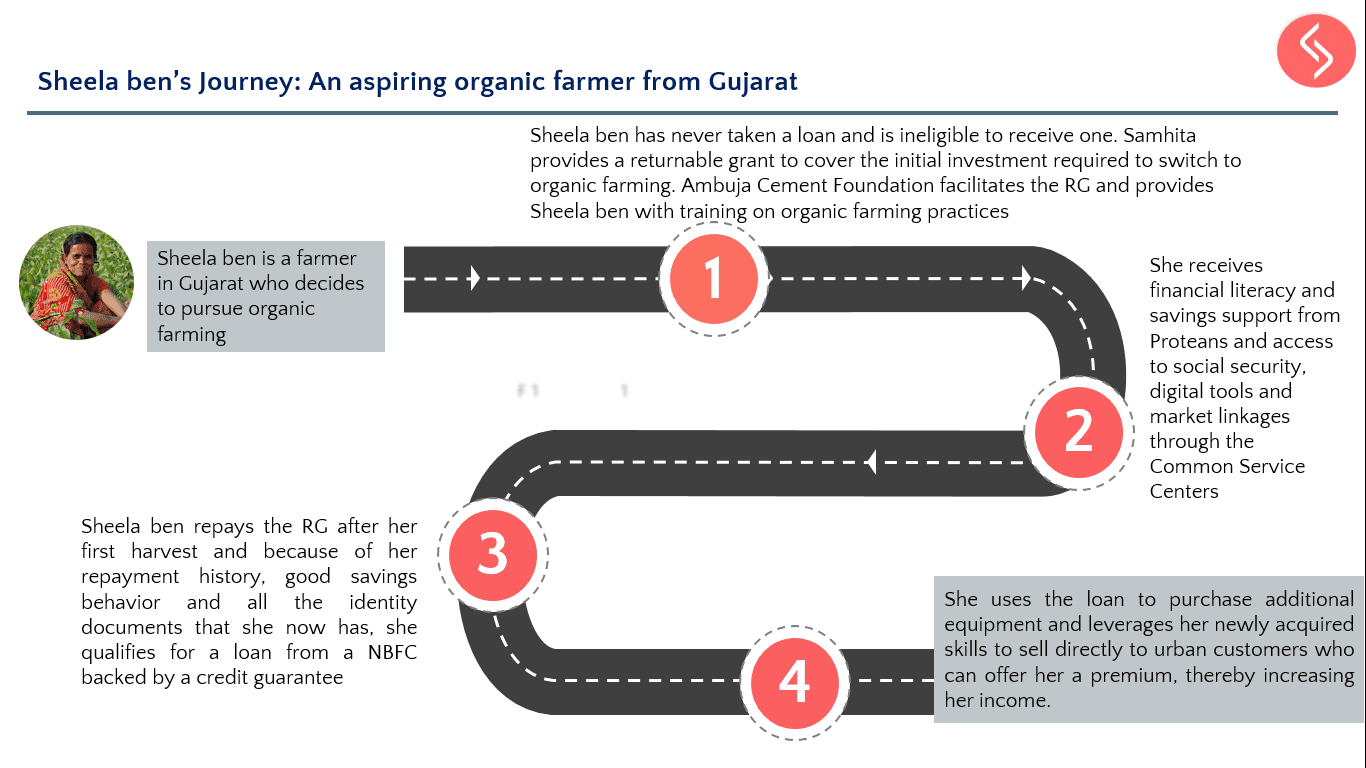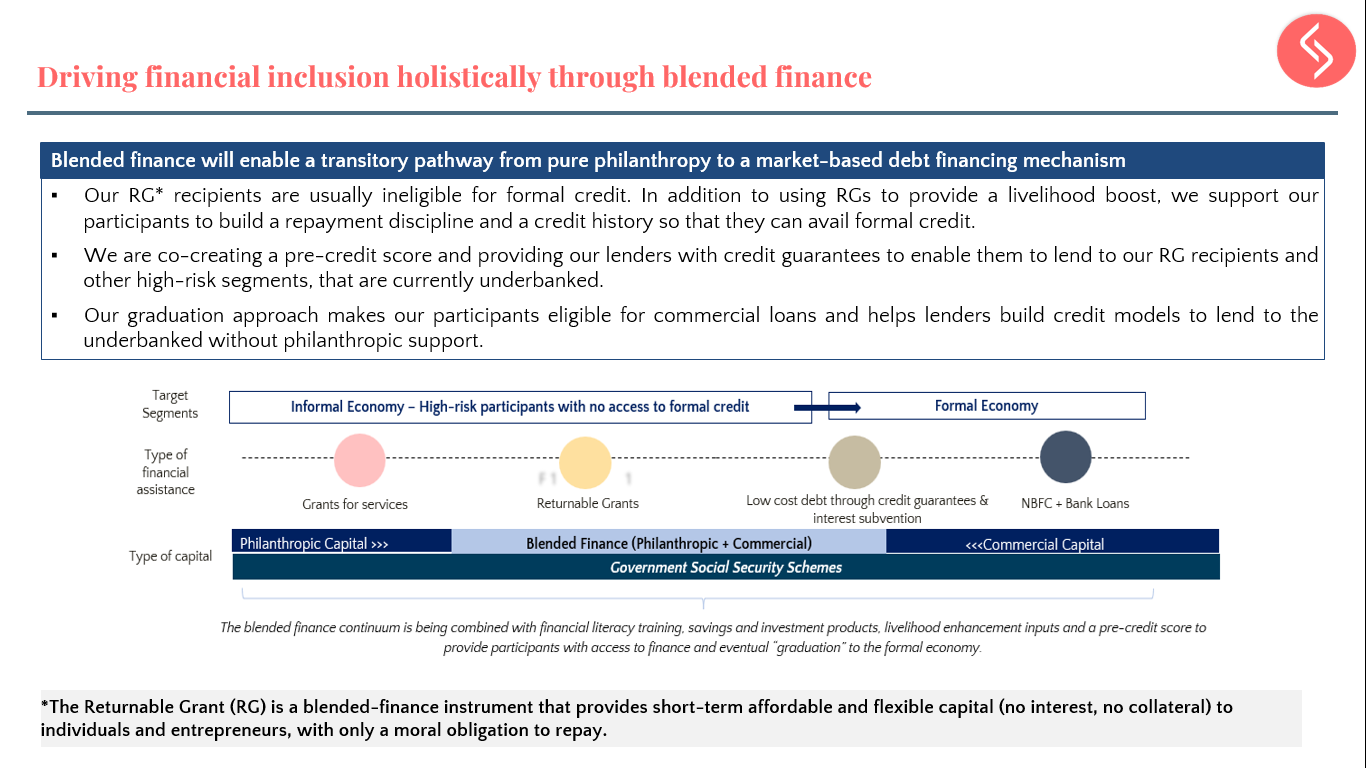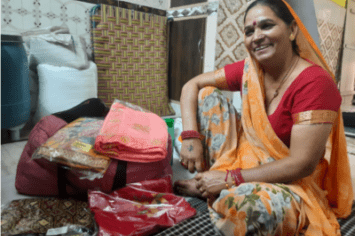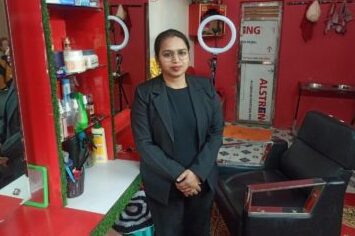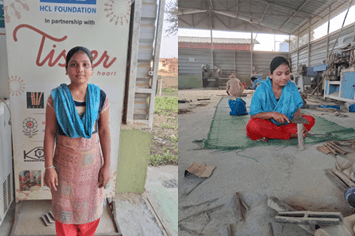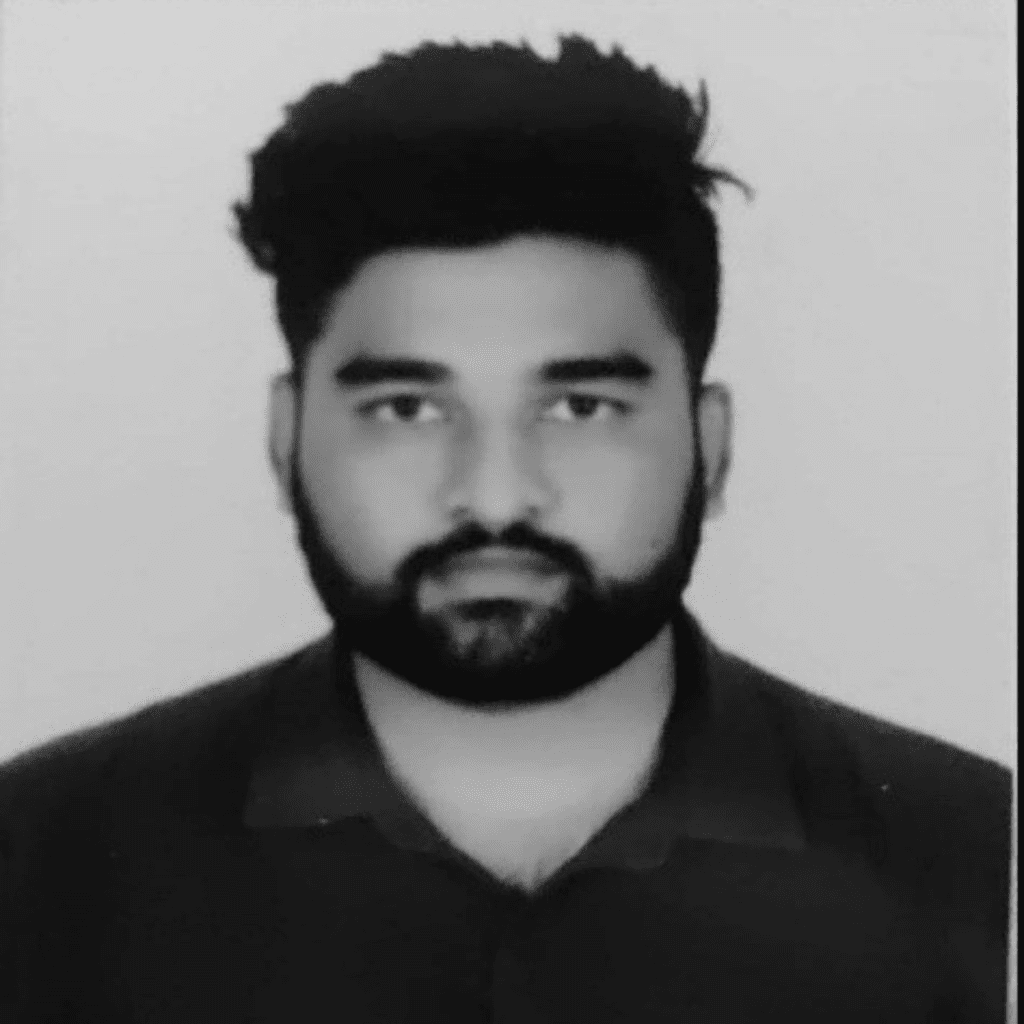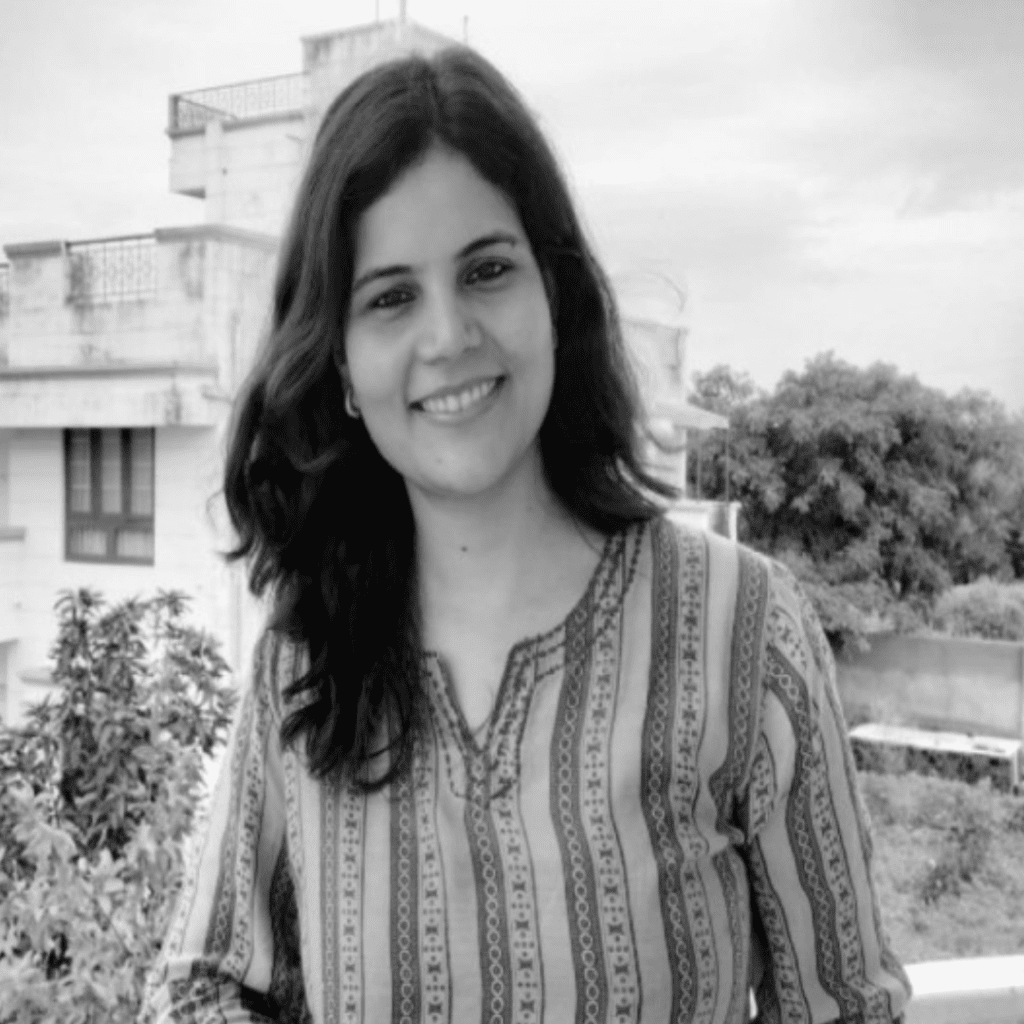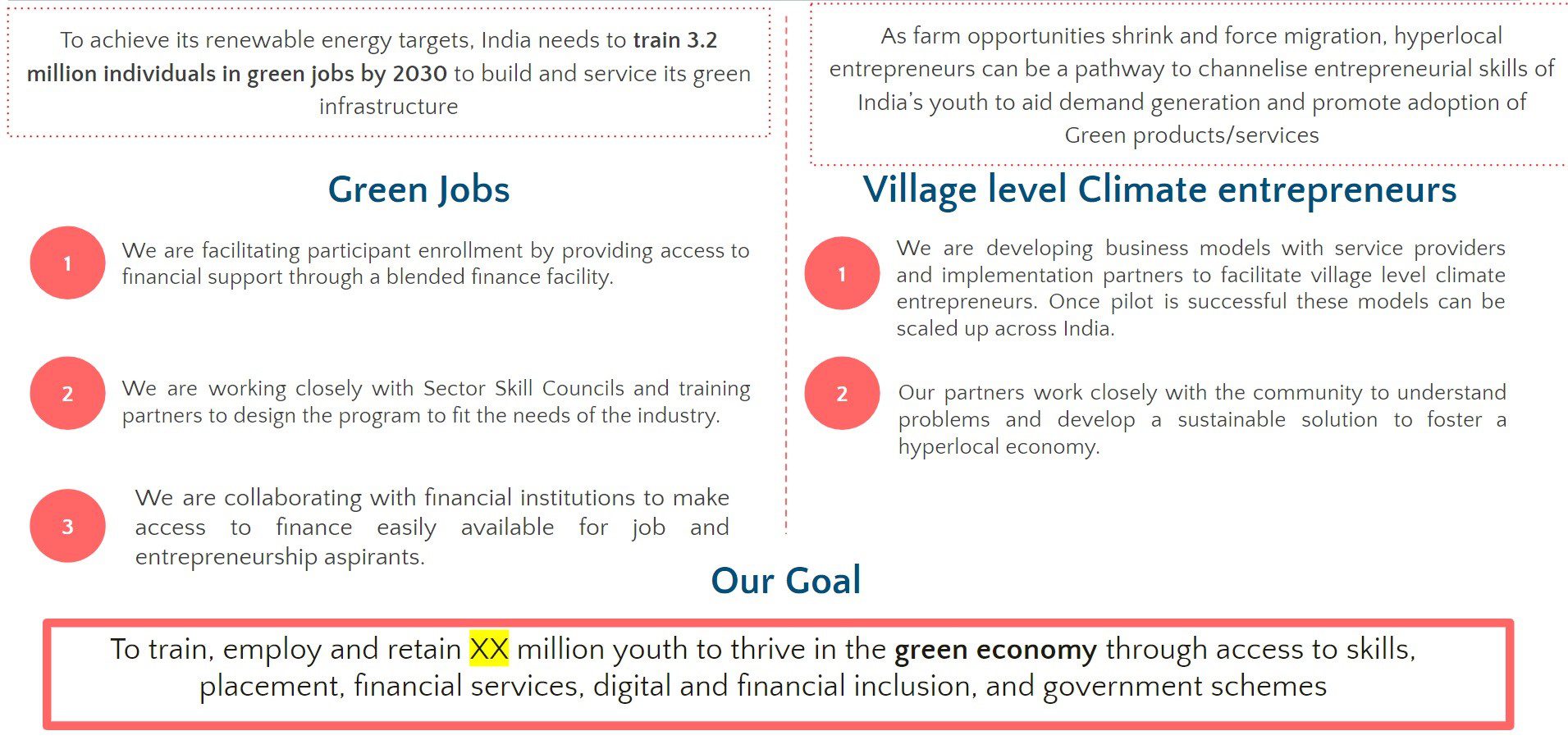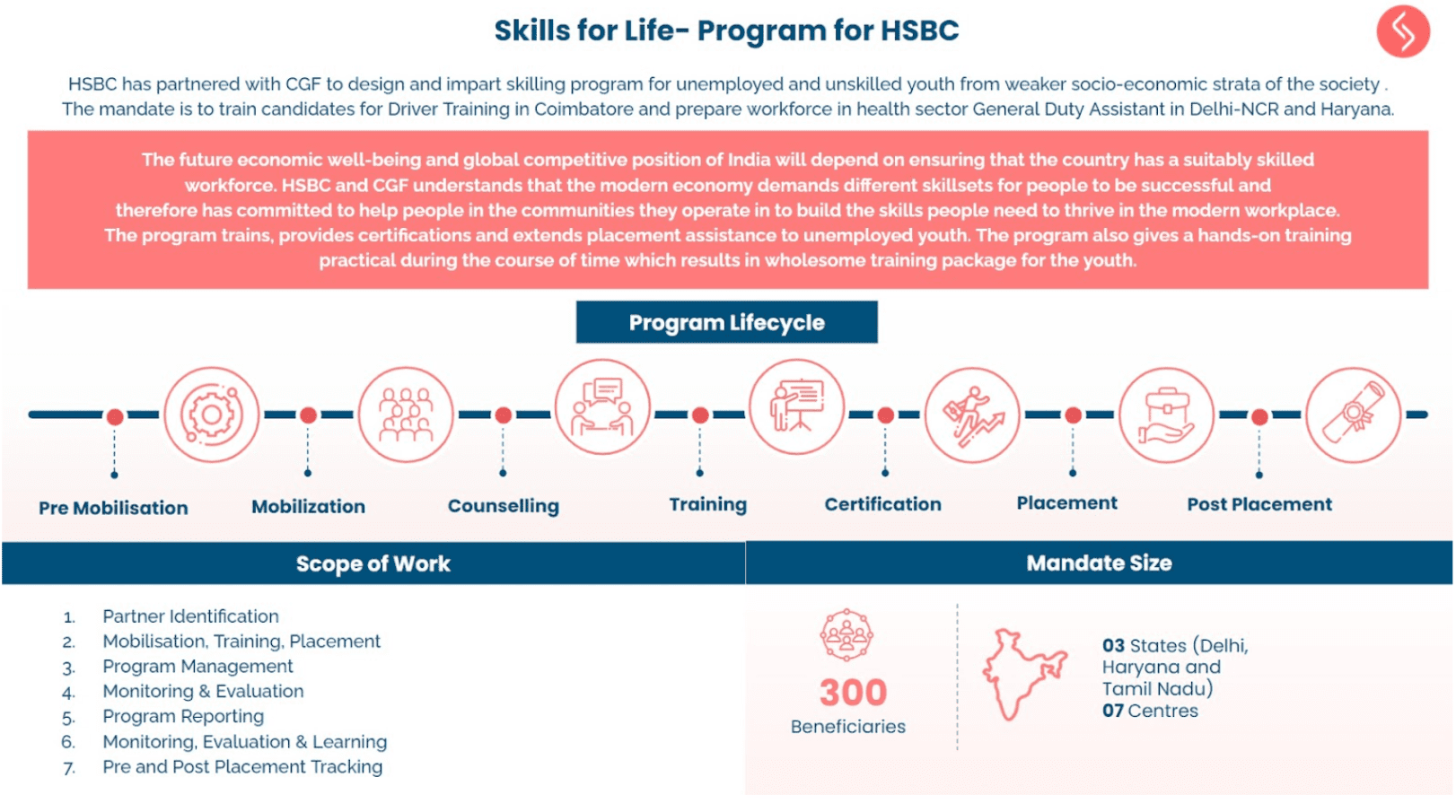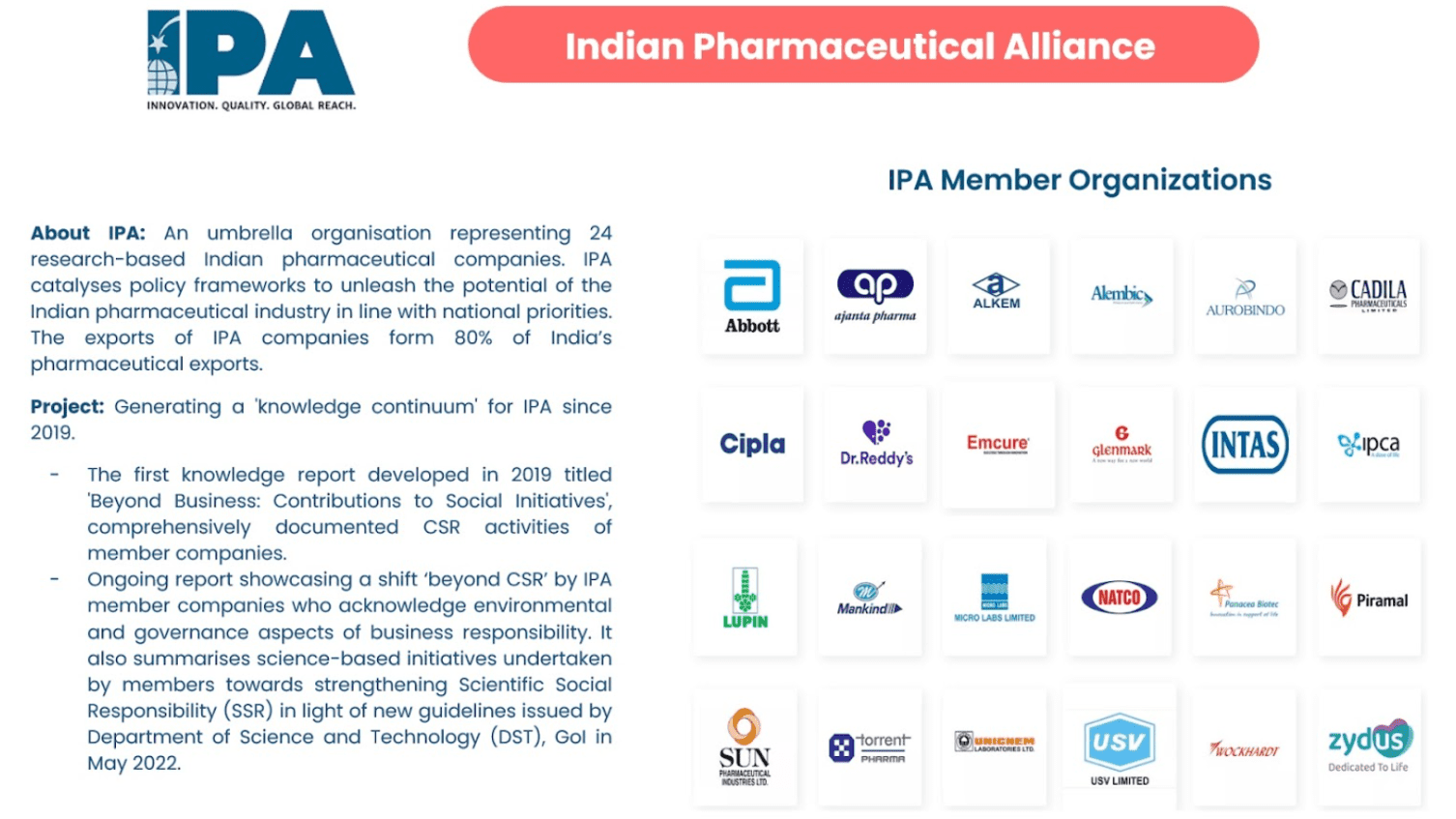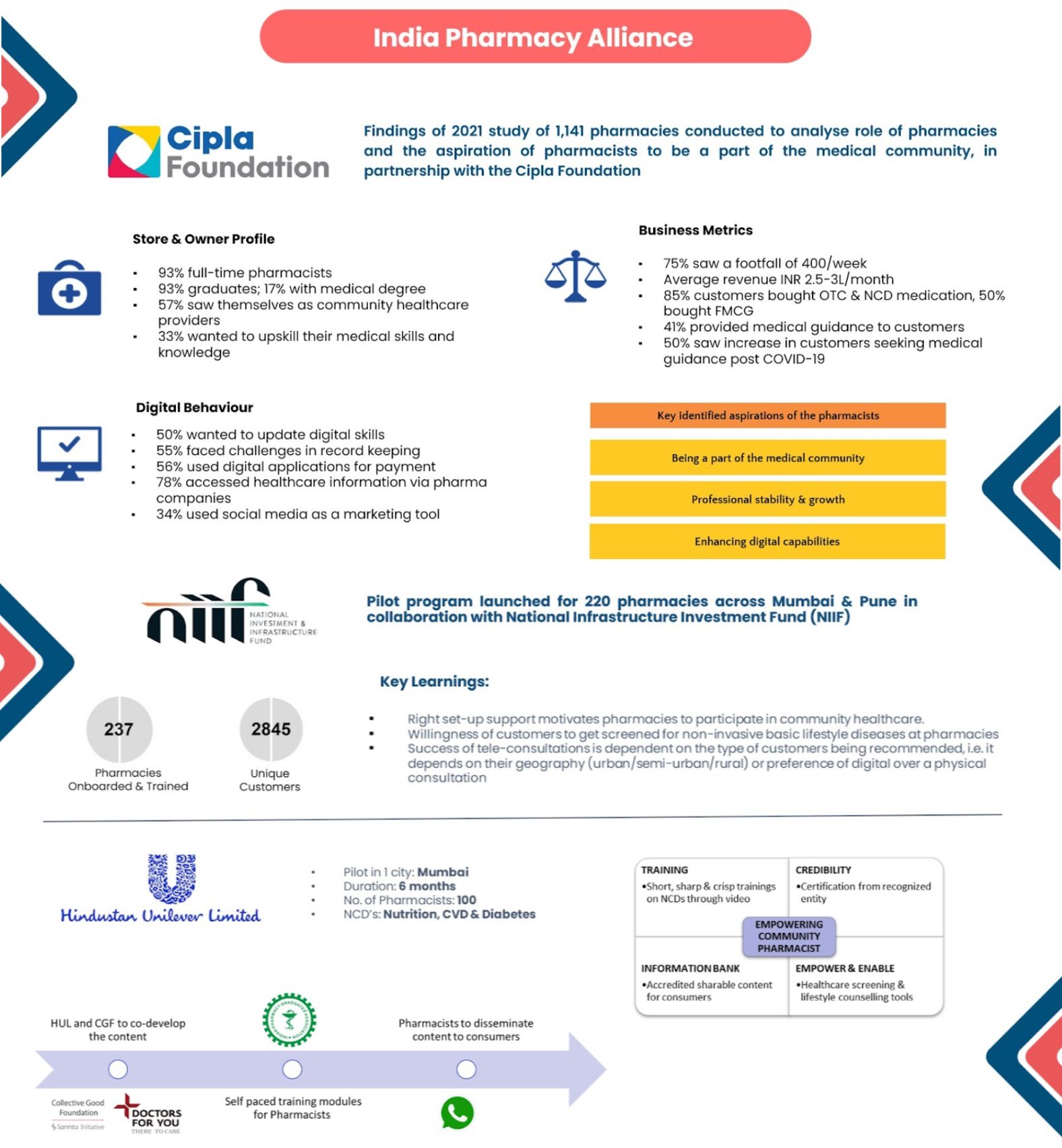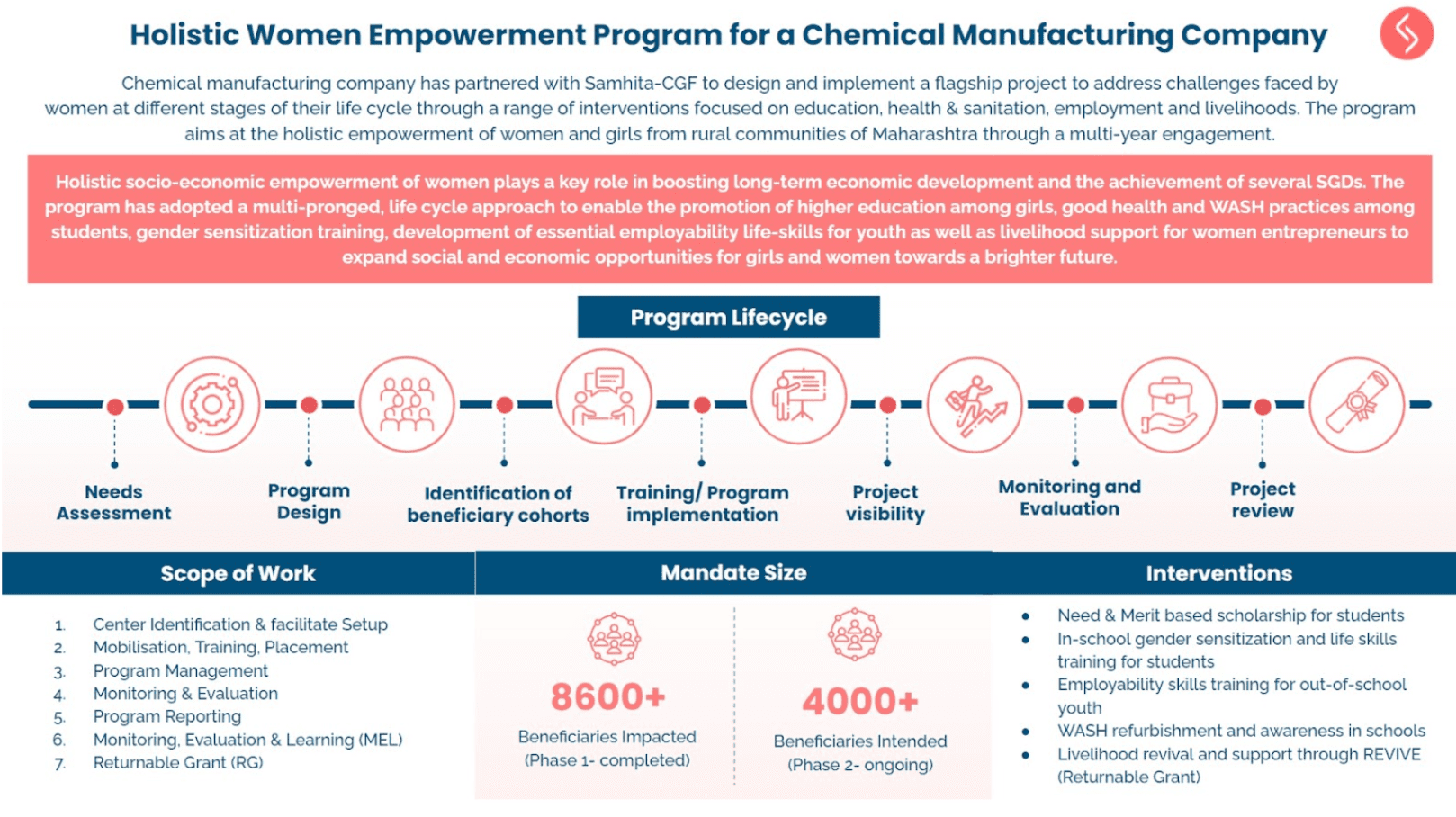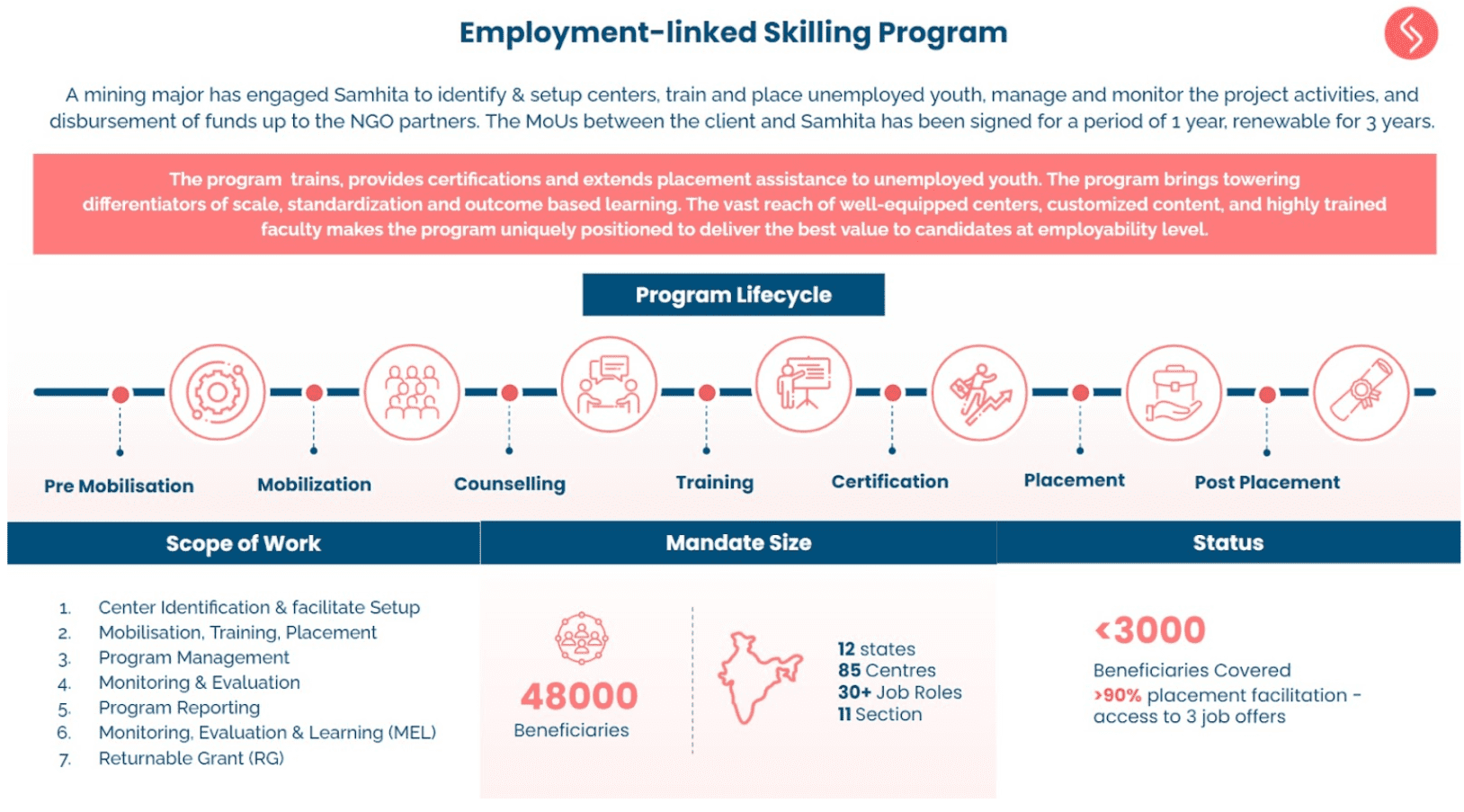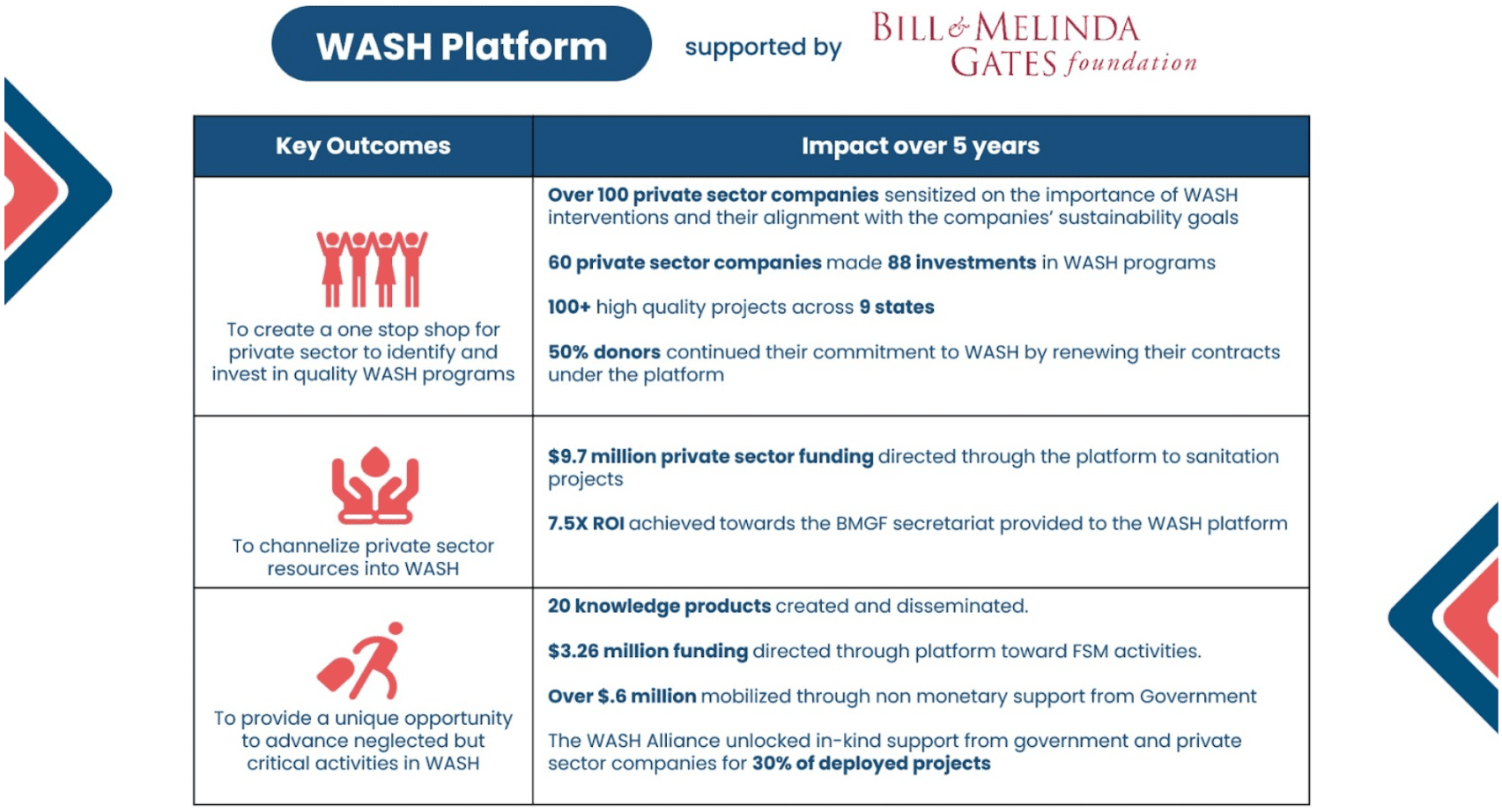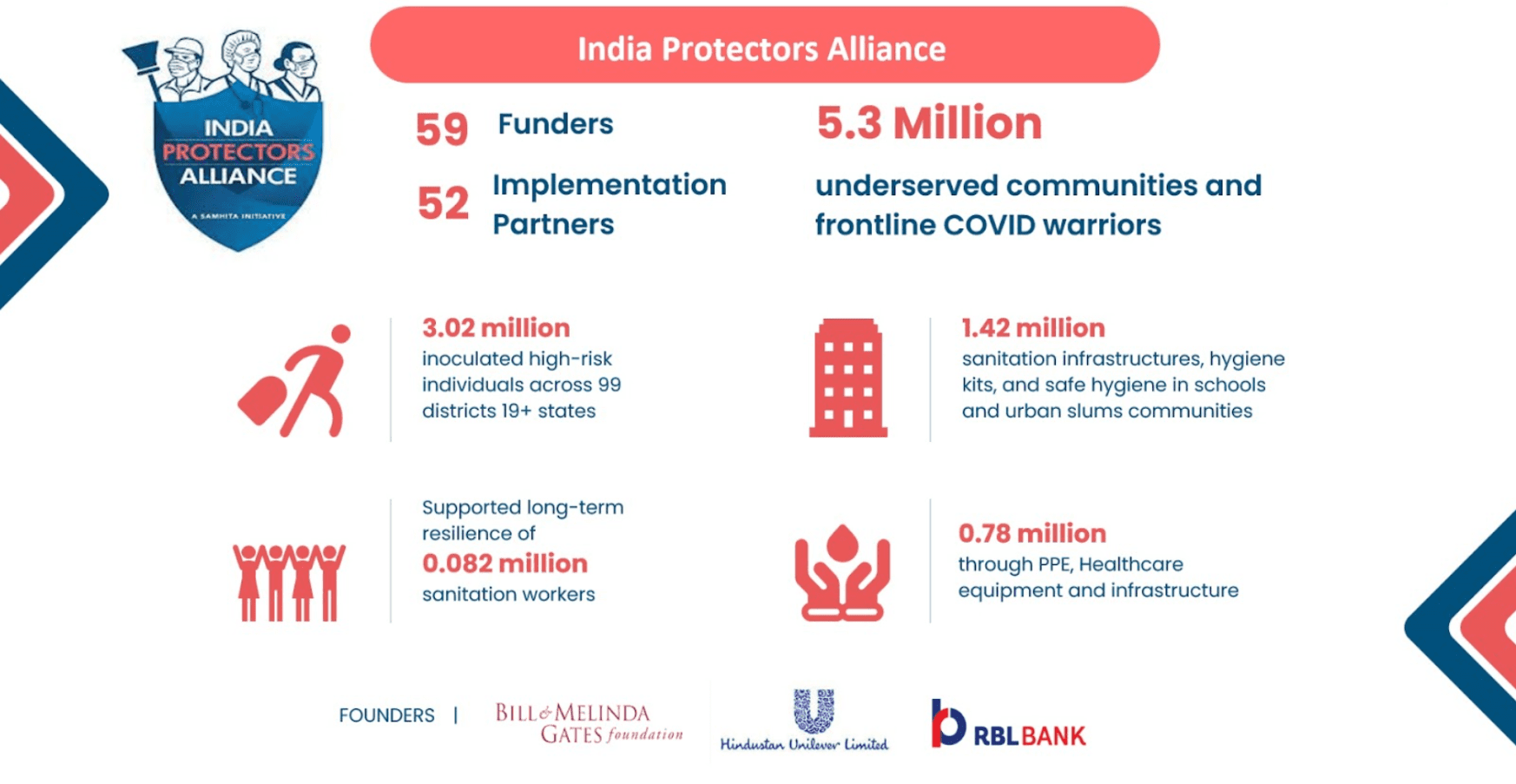The Credit Guarantee Program for Women Entrepreneurs in Gujarat, launched by Samhita-CGF and 360 ONE Foundation in partnership with SEWA, aims to provide credit access to 2600 women entrepreneurs with a total loan amount of up to INR 10 crore. This blog highlights the challenges faced by informal, unorganised MSMEs in accessing formal finance, it underscores the importance of credit guarantees and blended finance in empowering women and fostering inclusive economic growth.
In the bustling city of Ahmedabad, two women stand as pillars of resilience and determination. Truptiben Ambalal Chunara and Tejalben Kiritbhai Chunara, both informal entrepreneurs, have embarked on a journey to financial independence and stability. Their stories reflect the broader challenges faced by micro and small enterprises in India, especially those run by women, and demonstrate the transformative impact of access to formal credit.
Truptiben Ambalal Chunara, a 26-year-old vegetable vendor and dupatta seller, lives in a slum pocket in Ahmedabad. After separating from her husband due to domestic issues, she moved in with her brother and took on the responsibility of running the household. Her small vegetable stall, attached to her house, was her primary source of income. However, limited capital restricted her ability to keep a consistent stock of vegetables, affecting her daily earnings.

The turning point came when Truptiben received her first business loan of Rs. 40,000 from SEWA. This loan allowed her to purchase a more extensive and regular stock of vegetables, ensuring she could meet the demands of her customers. Additionally, she diversified her income by investing in dupattas, which she now sells from her home. With this strategic expansion, Truptiben’s daily earnings have increased to an average of Rs. 500 to Rs. 800.

Truptiben’s story highlights the critical role of access to formal credit in empowering informal entrepreneurs. It shows how financial support can help women like her overcome economic constraints, improve their livelihoods, and contribute to their communities.
Tejalben Kiritbhai Chunara, a 28-year-old door-to-door saree seller, shares a similar story of determination and growth. Living with her husband and two children, Tejalben’s business requires her to travel across Ahmedabad, selling sarees. Her income fluctuates with the seasons, earning her between Rs. 500 and Rs. 1,000 daily, which translates to a monthly income of Rs. 15,000 to Rs. 20,000. Her husband, an auto mechanic, contributes an additional Rs. 15,000 per month to the family income.
In December 2023, Tejalben received a Rs. 40,000 loan from SEWA. She utilised this loan to expand her saree inventory and set aside savings for future needs. With the increased stock, Tejalben’s business has become more stable and profitable. She started her EMI repayments in January 2024 and simultaneously began a recurring deposit of Rs. 400 per month with SEWA Bank.
Tejalben’s journey underscores the importance of formal credit in stabilising and expanding informal businesses. Her ability to plan for the future and manage her finances, moreover relearn about saving for personal and also business growth, effectively demonstrates the transformative potential of financial inclusion.
The stories of Truptiben and Tejalben are not unique but reflect a broader trend among MSMEs in India. MSMEs contribute around 30% of India’s GDP and employ over 110 million people. Despite their significant role, only about 16% of MSMEs have access to formal credit, creating a substantial gap in working capital and capacity-building support. This gap is even more pronounced for women, with 92.1% of women-owned MSMEs being unregistered, informal, and unable to access formal finance.
The International Finance Corporation (IFC) reports that only 27% of women in India have access to formal credit, compared to over 40% of men. This disparity highlights the urgent need to address the credit gap for women entrepreneurs. The government and various organisations emphasise supporting this sector by providing holistic development opportunities through affordable finance and other interventions.
Here we bring in blended finance, a strategic approach that uses development finance from public and philanthropic sources to mobilise additional private sector capital for sustainable impact. By combining grant funding with other sources of capital, such as debt or equity, blended finance maximises funding and social impact capacity.
Credit guarantees are one such instrument promoted by the government to drive financial inclusion. While not new, existing credit guarantee schemes have not effectively met the demands of lending institutions for high-risk segments like New to Credit (NTC) or New to Investment (NTI) entrepreneurs. Informal and unorganised entrepreneurs, lacking past credit history and formal recognition, are often deemed high-risk by banks and NBFCs.
Through the Credit Guarantee Program for Women Entrepreneurs in Gujarat, Samhita-CGF and 360 ONE Foundation, in partnership with SEWA, aim to provide access to formal credit for 2600 women entrepreneurs. This initiative includes a unique pre-credit score survey for 10-15% of NTC participants to assess their creditworthiness. Business loans will be provided to selected women entrepreneurs by March 2024, with repayment durations of 2 to 3 years. The credit guarantee will unlock a total loan amount of up to INR 10 crore, lowering the perceived risk for financial institutions and facilitating affordable finance for unbanked, low or no CIBIL score borrowers.

Truptiben and Tejalben’s stories illustrate the transformative impact of access to formal credit on informal, unorganised entrepreneurs. Their journeys highlight the critical role of financial inclusion in empowering women and fostering inclusive economic growth. By leveraging innovative financial tools like blended finance and credit guarantees, we can support more women entrepreneurs, enabling them to overcome economic constraints and achieve financial independence. Their success stories are a testament to the potential of inclusive financial practices in creating a more equitable and prosperous society.
360 ONE Foundation, in collaboration with Samhita-CGF, is deploying innovative, 100% FCRA and CSR-compliant financing instruments – Returnable Grants (RGs) and Credit-Guarantees (CGs) – to underserved communities to drive financial inclusion across India.





















